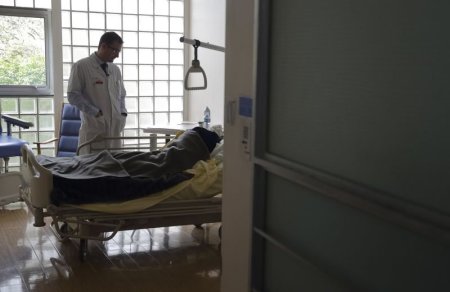Canadian woman loses Supreme Court appeal to stop husband's medically assisted death

A Nova Scotia man has died by euthanasia after his wife's appeal to the Supreme Court to stop the procedure was denied.
Jack Sorenson, 83, died last Saturday after having been approved for a medically-assisted death this summer. The procedure was delayed, however, after his wife, Katherine, appealed to the provincial Supreme Court to halt it, according to the Canadian Broadcasting Company.
Sorenson had 49% lung capacity due to chronic obstructive pulmonary disease and had reportedly said in an August interview that he was suffering a great deal due to shortness of breath. His wife, however, maintained that his suffering was not physical but mental, and that his desire to end his life was rooted in anxiety. She also stated her opposition on moral grounds to medical aid-in-dying (MAiD), a euphemism that means euthanasia.
The judge who wrote the decision permitting Sorenson to end his life said in the ruling that courts should intervene with rare exceptions, provided that medical authorities followed proper protocols in processing a patient's request to die.
Sorenson had attempted suicide earlier this year and when his wife learned of it during a phone call in August — the last time they ever spoke — a temporary injunction was put into effect that prevented him from obtaining a medically-assisted death. He was moved out of their home after his wife initiated the legal fight to stop the procedure.
"I've had a wonderful life with Jack. There have been, as with any marriage, lots of varying opinions between the spouses and I thought we did a pretty good job of reconciling two pretty opposite views," Katherine told the CBC.
Katherine is a devout Christian and Jack had reportedly been an atheist since early adulthood.
Health authorities are insisting that the established protocols were adhered to, telling the CBC Tuesday that they "are confident that in this case appropriate steps and processes were followed, in accordance with current legislation and policies."
Medical aid in dying has been legal alongside doctor-assisted suicide in Canada since 2016.
Katherine previously said before losing the Supreme Court appeal that the claims in the case raised important considerations regarding the administration of the practice within the medical system, particularly when it extends beyond those who are facing a physical disease.
"Because this is an important issue that has not been dealt with, and it isn't just for Jack. It's for any vulnerable person. I think MAID is not very concerned about mentally ill people," she said.




















